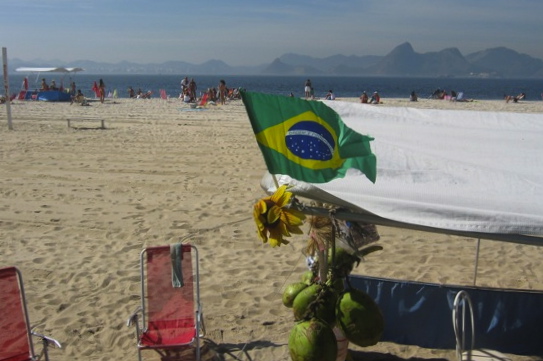Steady performance levels in Brazil coupled with efficiencies in operations led to a record 36.5% gross operating performance in 2011, according to Jones Lang LaSalle’s Lodging Industry in Numbers – Brazil 2012.
Brazil’s occupancy rate rose 2.2% year-over-year in 2011, which is comparable to the real GDP growth rate for the year, ending the year near 70%. ADR accelerated by more than 17.2% in 2011, resulting in city hotels reporting record RevPAR growth of 20.5%.
For the first five months of 2012, occupancy rates are slightly lower than the same period 2011. However, ADR continued to grow at a rapid 17.5%.
Investors eye Brazil
Stellar performance has made Brazilian hotels an attractive investment option featuring solid returns. “Companies have already started jumping into the game, snatching up prime opportunities to acquire or develop in the region due to the consistent and on-going demand,” said Ricardo Mader, executive vice president of Jones Lang LaSalle in Brazil. “Host Hotels & Resorts recently announced it plans to develop a 150-room Novotel and a 255-room Ibis in Rio de Janeiro, one mile from where the Olympic Games will be hosted. Accor also acquired the South American portfolio of Grupo Posadas, which comprises 11 hotels in Brazil.”
Restricted supply pipeline
The Brazilian lodging industry’s healthy performance remains underpinned by the imbalance between supply and demand. Brazil’s nearly 10,000 hotels with some 500,000 rooms hosted more than 5.4 million visitors in 2011, representing a 5.8% increase year-over-year. Hotel supply growth is estimated at only 238 projects in the next three years encompassing 38,854 rooms.

Additionally, economic decentralization led to new development opportunities for hotels in cities where large infrastructure projects, such as mining, oil refineries and gas, are underway. These regions are target areas for investment, as they are underserved with adequate quality hotel stock.
“There is still great room for growth in Brazil’s hotel supply, especially outside of the major cities,” said Manuela Gorni, senior vice president of Jones Lang LaSalle Hotels in São Paolo. “Unlike past World Cup and Olympics host cities, we expect São Paulo and Rio de Janeiro to absorb supply additions more easily and maintain demand well past the games, given the cities’ deficiency in supply from the get-go.”
Brazil was also one of the first emerging markets to stage an economic recovery, and continued stabilization of the country’s economy bodes well for the lodging market. As the country’s per capita income continued to grow, leisure travel increased and represented 21.3% of the market mix, second only to corporate travel. The resort segment recorded the strongest recovery in 2011, reaching 50% occupancy and total revenue per occupied room of R$683 (US$336).

